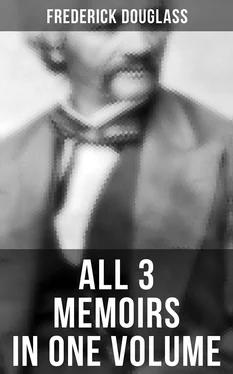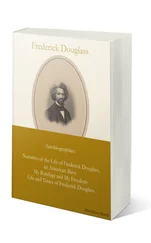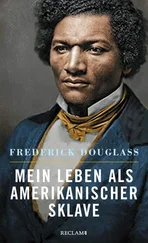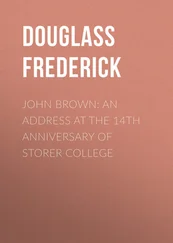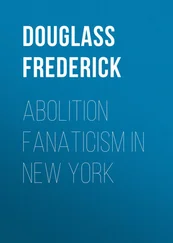But in my expectations I was doubly disappointed; Master Thomas was Master Thomas still. The fruits of his righteousness were to show themselves in no such way as I had anticipated. His conversion was not to change his relation toward men—at any rate not toward BLACK men—but toward God. My faith, I confess, was not great. There was something in his appearance that, in my mind, cast a doubt over his conversion. Standing where I did, I could see his every movement. I watched narrowly while he remained in the little pen; and although I saw that his face was extremely red, and his hair disheveled, and though I heard him groan, and saw a stray tear halting on his cheek, as if inquiring “which way shall I go?”—I could not wholly confide in the genuineness of his conversion. The hesitating behavior of that tear-drop and its loneliness, distressed me, and cast a doubt upon the whole transaction, of which it was a part. But people said, “Capt. Auld had come through,” and it was for me to hope for the best. I was bound to do this, in charity, for I, too, was religious, and had been in the church full three years, although now I was not more than sixteen years old. Slaveholders may, sometimes, have confidence in the piety of some of their slaves; but the slaves seldom have confidence in the piety of their masters. “He cant go to heaven with our blood in his skirts ,” is a settled point in the creed of every slave; rising superior to all teaching to the contrary, and standing forever as a fixed fact. The highest evidence the slaveholder can give the slave of his acceptance with God, is the emancipation of his slaves. This is proof that he is willing to give up all to God, and for the sake of God. Not to do this, was, in my estimation, and in the opinion of all the slaves, an evidence of half-heartedness, and wholly inconsistent with the idea of genuine conversion. I had read, also, somewhere in the Methodist Discipline, the following question and answer:
“ Question . What shall be done for the extirpation of slavery?
“ Answer . We declare that we are much as ever convinced of the great evil of slavery; therefore, no slaveholder shall be eligible to any official station in our church.”
These words sounded in my ears for a long time, and encouraged me to hope. But, as I have before said, I was doomed to disappointment. Master Thomas seemed to be aware of my hopes and expectations concerning him. I have thought, before now, that he looked at me in answer to my glances, as much as to say, “I will teach you, young man, that, though I have parted with my sins, I have not parted with my sense. I shall hold my slaves, and go to heaven too.”
Possibly, to convince us that we must not presume too much upon his recent conversion, he became rather more rigid and stringent in his exactions. There always was a scarcity of good nature about the man; but now his whole countenance was soured over with the seemings of piety. His religion, therefore, neither made him emancipate his slaves, nor caused him to treat them with greater humanity. If religion had any effect on his character at all, it made him more cruel and hateful in all his ways. The natural wickedness of his heart had not been removed, but only reinforced, by the profession of religion. Do I judge him harshly? God forbid. Facts are facts. Capt. Auld made the greatest profession of piety. His house was, literally, a house of prayer. In the morning, and in the evening, loud prayers and hymns were heard there, in which both himself and his wife joined; yet, no more meal was brought from the mill, no more attention was paid to the moral welfare of the kitchen; and nothing was done to make us feel that the heart of Master Thomas was one whit better than it was before he went into the little pen, opposite to the preachers’ stand, on the camp ground.
Our hopes (founded on the discipline) soon vanished; for the authorities let him into the church at once , and before he was out of his term of probation , I heard of his leading class! He distinguished himself greatly among the brethren, and was soon an exhorter. His progress was almost as rapid as the growth of the fabled vine of Jack’s bean. No man was more active than he, in revivals. He would go many miles to assist in carrying them on, and in getting outsiders interested in religion. His house being one of the holiest, if not the happiest in St. Michael’s, became the “preachers’ home.” These preachers evidently liked to share Master Thomas’s hospitality; for while he starved us , he stuffed them. Three or four of these ambassadors of the gospel—according to slavery—have been there at a time; all living on the fat of the land, while we, in the kitchen, were nearly starving. Not often did we get a smile of recognition from these holy men. They seemed almost as unconcerned about our getting to heaven, as they were about our getting out of slavery. To this general charge there was one exception—the Rev. GEORGE COOKMAN. Unlike Rev. Messrs. Storks, Ewry, Hickey, Humphrey and Cooper (all whom were on the St. Michael’s circuit) he kindly took an interest in our temporal and spiritual welfare. Our souls and our bodies were all alike sacred in his sight; and he really had a good deal of genuine anti-slavery feeling mingled with his colonization ideas. There was not a slave in our neighborhood that did not love, and almost venerate, Mr. Cookman. It was pretty generally believed that he had been chiefly instrumental in bringing one of the largest slaveholders—Mr. Samuel Harrison—in that neighborhood, to emancipate all his slaves, and, indeed, the general impression was, that Mr. Cookman had labored faithfully with slaveholders, whenever he met them, to induce them to emancipate their bondmen, and that he did this as a religious duty. When this good man was at our house, we were all sure to be called in to prayers in the morning; and he was not slow in making inquiries as to the state of our minds, nor in giving us a word of exhortation and of encouragement. Great was the sorrow of all the slaves, when this faithful preacher of the gospel was removed from the Talbot county circuit. He was an eloquent preacher, and possessed what few ministers, south of Mason Dixon’s line, possess, or dare to show, viz: a warm and philanthropic heart. The Mr. Cookman, of whom I speak, was an Englishman by birth, and perished while on his way to England, on board the ill-fated “President”. Could the thousands of slaves in Maryland know the fate of the good man, to whose words of comfort they were so largely indebted, they would thank me for dropping a tear on this page, in memory of their favorite preacher, friend and benefactor.
But, let me return to Master Thomas, and to my experience, after his conversion. In Baltimore, I could, occasionally, get into a Sabbath school, among the free children, and receive lessons, with the rest; but, having already learned both to read and to write, I was more of a teacher than a pupil, even there. When, however, I went back to the Eastern Shore, and was at the house of Master Thomas, I was neither allowed to teach, nor to be taught. The whole community—with but a single exception, among the whites—frowned upon everything like imparting instruction either to slaves or to free colored persons. That single exception, a pious young man, named Wilson, asked me, one day, if I would like to assist him in teaching a little Sabbath school, at the house of a free colored man in St. Michael’s, named James Mitchell. The idea was to me a delightful one, and I told him I would gladly devote as much of my Sabbath as I could command, to that most laudable work. Mr. Wilson soon mustered up a dozen old spelling books, and a few testaments; and we commenced operations, with some twenty scholars, in our Sunday school. Here, thought I, is something worth living for; here is an excellent chance for usefulness; and I shall soon have a company of young friends, lovers of knowledge, like some of my Baltimore friends, from whom I now felt parted forever.
Читать дальше
